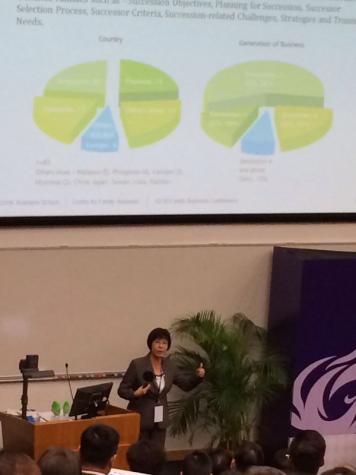
As many Asian high net worth and ultra-high net worth families transition their businesses to the next generation, succession is becoming an increasingly pressing issue. Given that a lot of Asian businesses are in their first and second generation, a perceived lack of talent in future generations has become a hurdle, according to a recent report by Singapore Management University (SMU) and Deloitte.
"We are starting to hear from families in both North and South Asia that the issue of succession has come to a critical stage," notes Annie Koh, vice president of business development and external relations at SMU's Business Families Institute. "Many owners of large Asian businesses are transitioning into their second and third generation, and this is keeping them awake at night" she says.
Nearly two-thirds of the report's respondents agreed that the "lack of talent inventory among the next generation and identifying capable talent" was a challenge for families attempting to develop a succession plan but opinions on how to address the issue differ depending on which generation the business is in. Whilst 77% of first generation businesses wanted to keep management purely within the family, the trend changes with time. A total of 65% of second generation families were open to both family and non-family members running the business while 12% and 10% of third and fourth generation families, respectively, want a non-family member take the helm.
Koh highlights the fact that many children of the next generation have gone to universities and majored in fields outside of traditional Asian family businesses. However, some families do not realise how these new skills can be applied. For example, Koh says a daughter of a pharmaceutical retail company came back from studying overseas with a design degree and could not see how it could be used to help her succeed the family business. Koh recalls telling her that designing interiors for her family's stores could be a game-changer for her business, adding that many skills can be a shot in the arm for existing businesses willing to consider skills outside of their core competencies.
Furthermore, only 26% of respondents were looking to monetise their family business, be it through IPOs or mergers and acquisitions - a trait that speaks of a disconnect between private banks with offerings to preserve wealth, and families that want to continue growing their businesses.
The report, titled Asian Business Families Succession Research Survey Report 2013, included data from more than 80 business families from Indonesia, Malaysia, Philippines, Singapore, Thailand, Vietnam and more. The results were first released during the 50-50 Family Business Conference held at the Chinese University of Hong Kong, of which Asian Private Banker was the sole media partner.